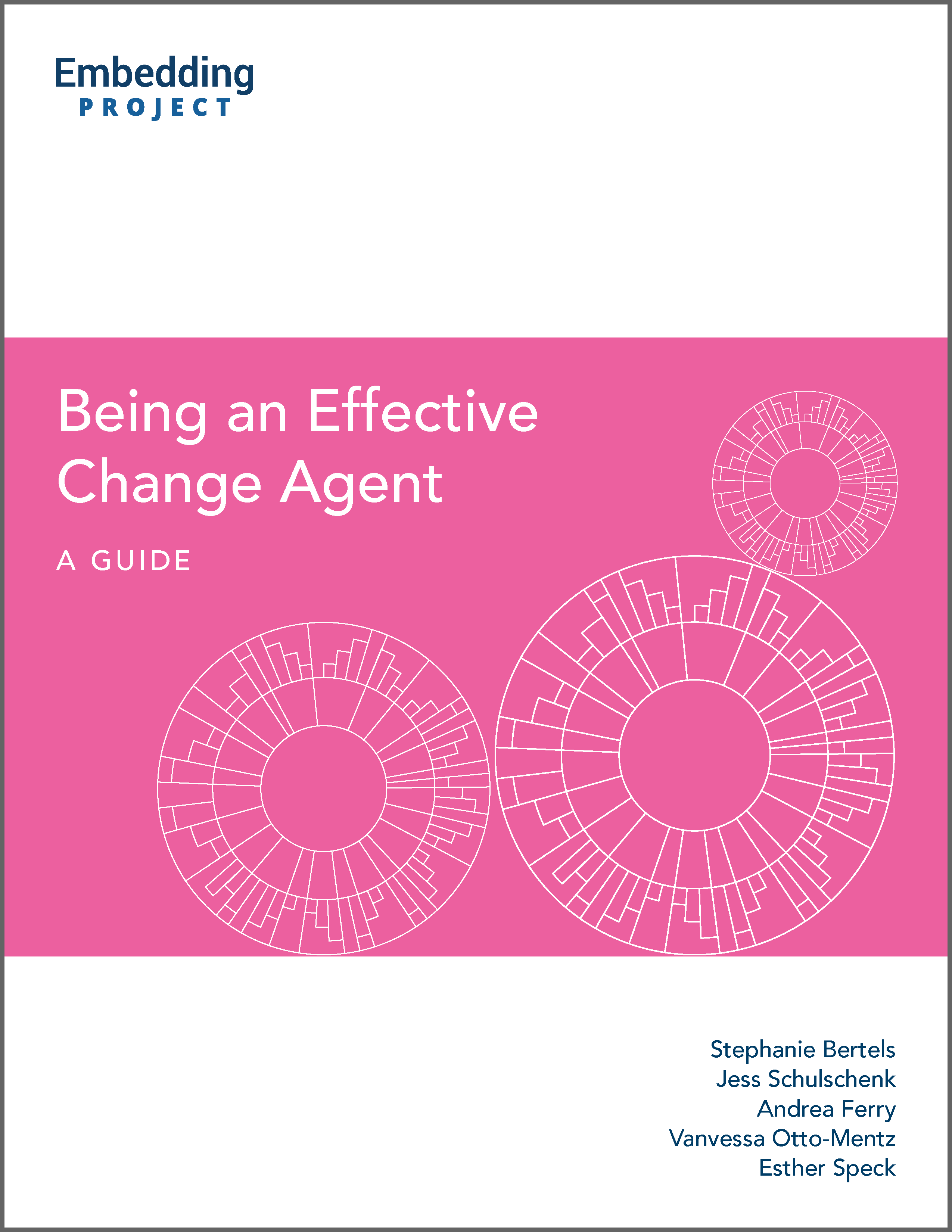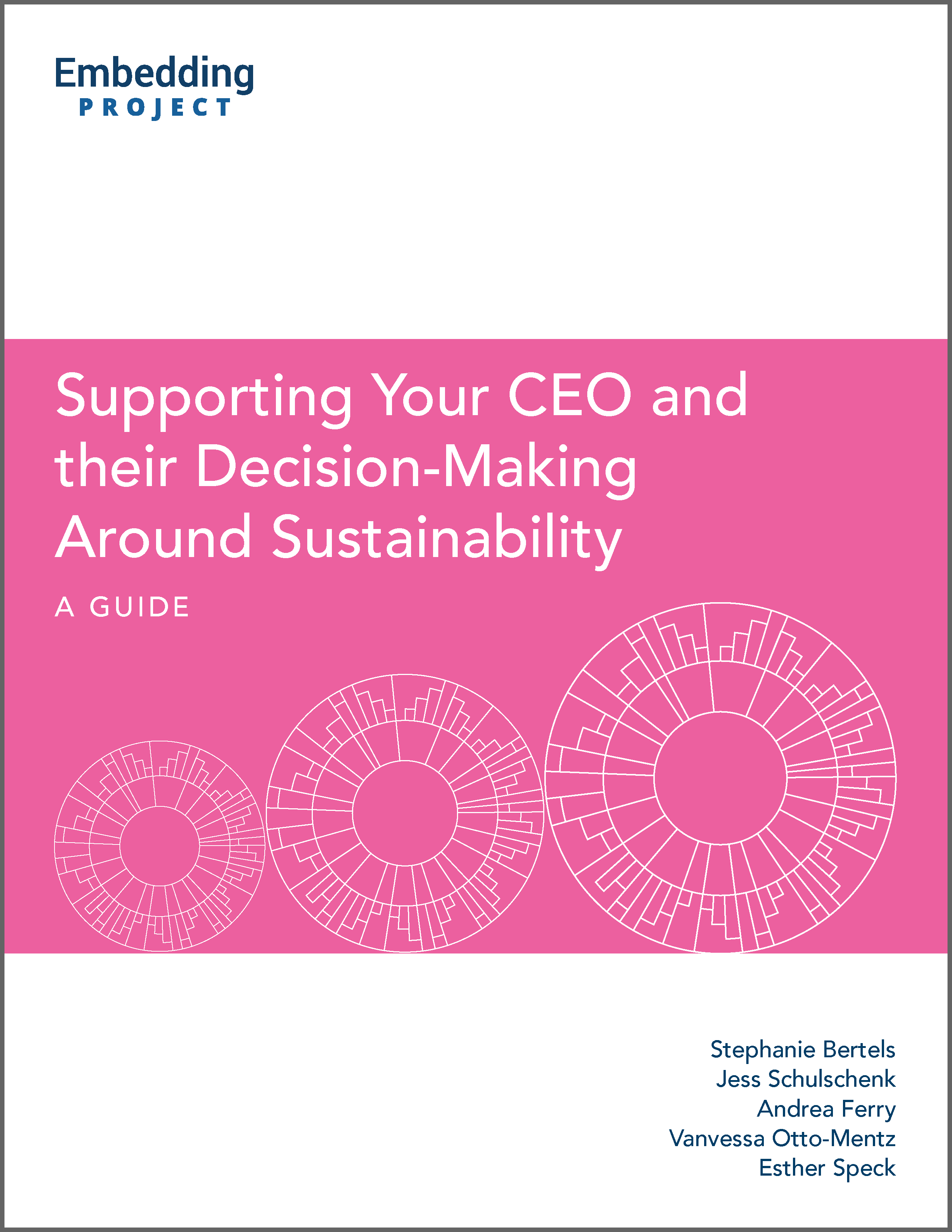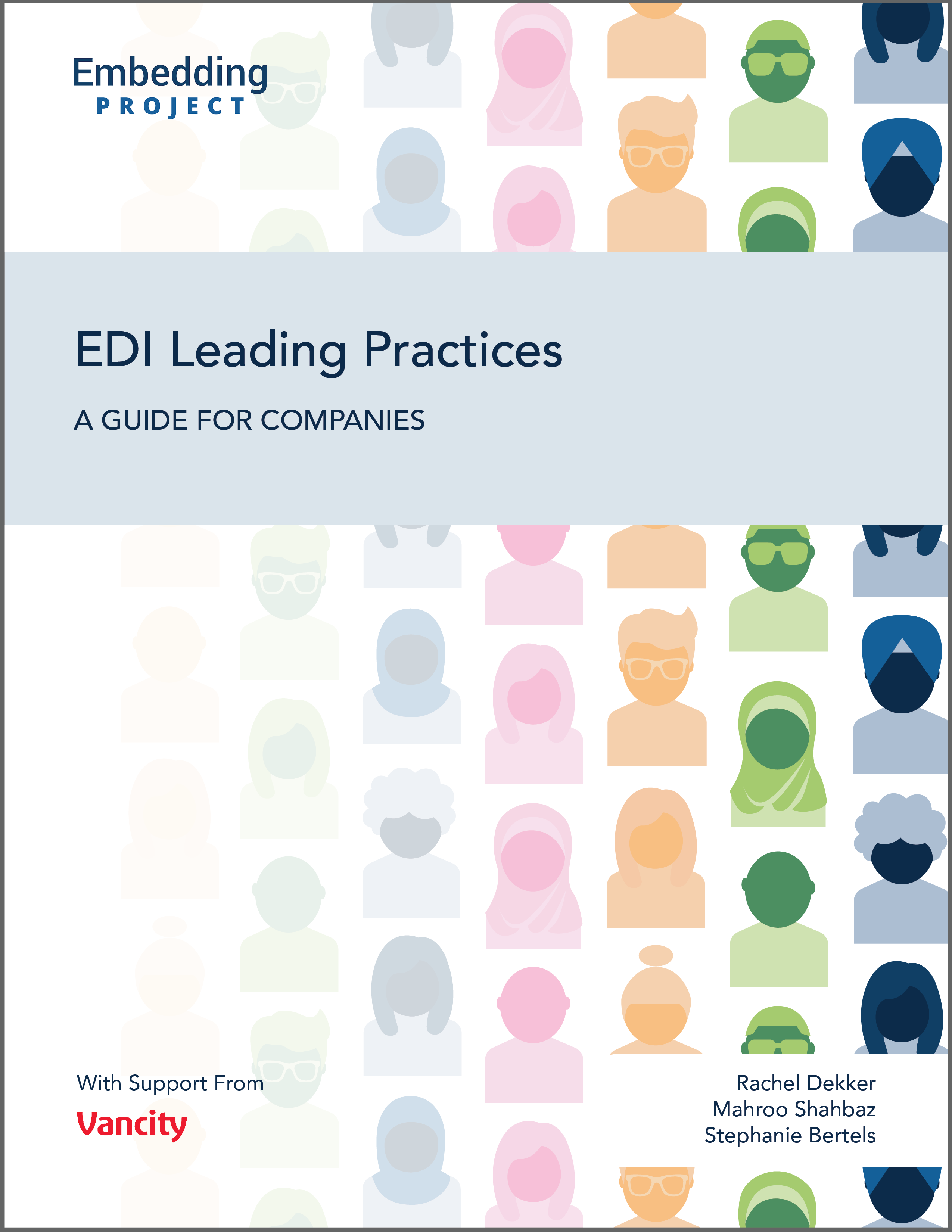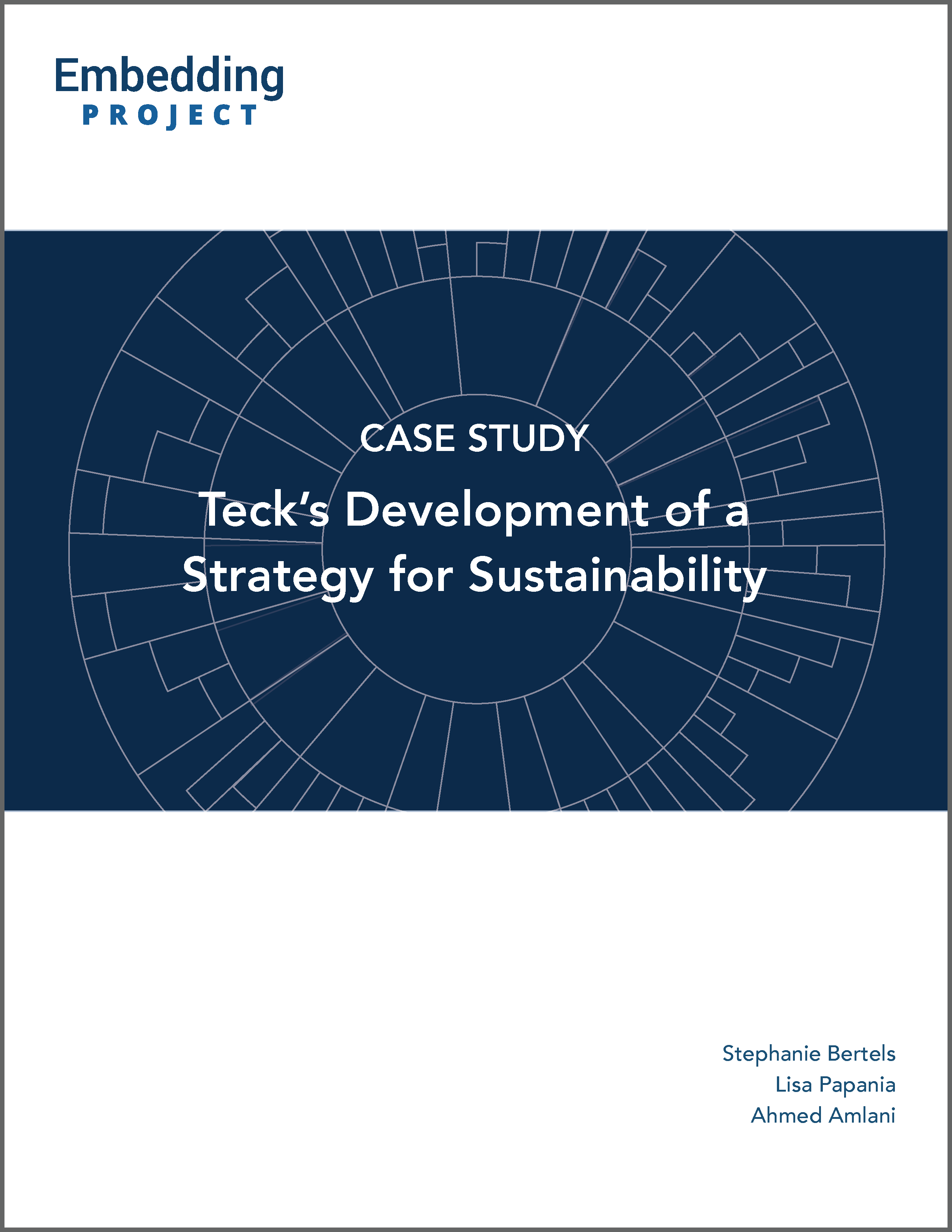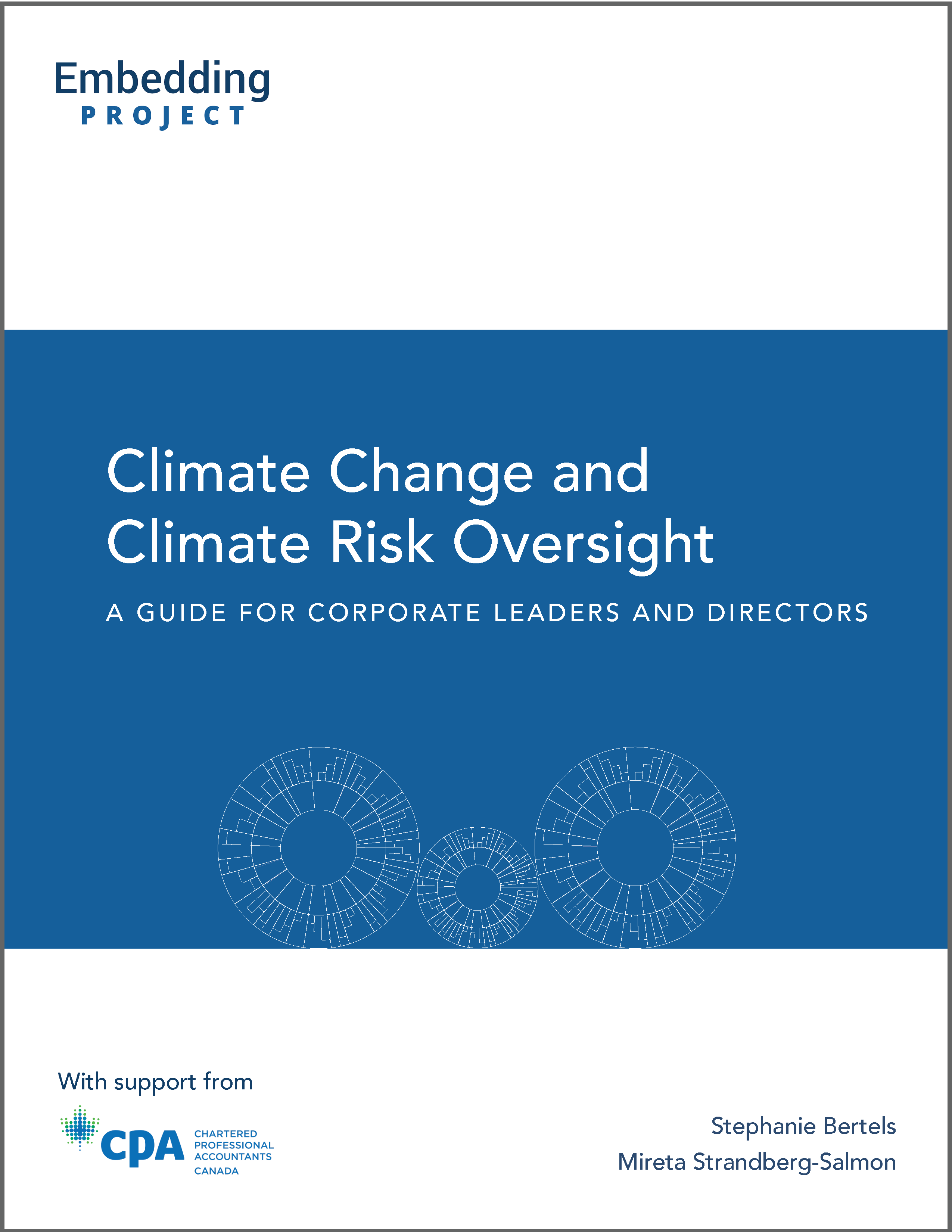Develop Leaders
Description
These resources will help to develop leaders’ capacity and sense of efficacy to support and enable the organisation’s sustainability journey through their knowledge, actions, and decision-making. This includes education materials, core concept primers, materials on anticipatory thinking, and insights from thought leaders.
Share this Practice on:LinkedIn
Resources
Building Competencies
Becoming an Agent of Change
This guidebook is based on a multi-year research project we undertook to explore: 'Why and how do privileged insiders become agents of change, challenging institutions for broader societal benefit?' We share what we have learned about the process of becoming an agent of change, incorporating the experiences of the change agents we interviewed in their own words. We hope that this guide helps you to reflect on your own journey of change.
Being an Effective Change Agent
How can you prepare yourself to be a more effective sustainability change agent? This guide was designed to share insights on how change agents can support their CEO and influence thinking on sustainability. It is based on a review of prior academic research on CEO decision-making and combined with the practical experiences and insights gleaned from interviews with over 200 CEOs, board members, and sustainability executives. It explores a broad range of global companies and industries including finance and insurance, material extraction, retail, manufacturing, transportation, logistics, utilities, and agribusiness, as well as a diverse array of ownership structures, including public corporations, privately owned businesses, and co-operatives.
To further support you in bolstering your own effectiveness, we have also developed the Being an Effective Change Agent: Personal Inventory. We encourage you to use this as a tool for reflection, and to help you plan your future personal development.
Supporting Your CEO
CEOs play a crucial role in embedding sustainability into the strategies and day-to-day decisions of their organisations. Based on over 200 interviews with CEOs, board members, and sustainability executives from a range of global companies and a review of prior academic research on CEO decision-making, we developed these resources to share insights on how corporate change agents can help influence CEO thinking on sustainability.
In our Guide, we describe each of the characteristics in detail, incorporating as many direct experiences as possible to help sustainability change agents think about how to support their CEO. We also developed a Tactical Inventory to help change agents reflect on these tactics and to identify which of them might be most appropriate for their own setting.
EDI Leading Practices: A Guide for Companies
Workplace equity, diversity, and inclusion (EDI) is a complex and rapidly evolving space, and increasingly, companies are interested in understanding how to meaningfully advance EDI in their organisations. To help them do so, we consulted EDI research and guidance, reviewed practices of over 100 companies, and sought input from practitioners across a range of industries and geographies. Our Equity, Diversity, and Inclusion Leading Practices Guide offers a comprehensive framework with practices, case studies, and resources to help organisations embed EDI into their strategy, structures, and culture.
Teck's Development of a Strategy for Sustainability
This case provides an insider's perspective on the development of Teck's first strategy for sustainability. It explores the company's early rationale behind developing and implementing a multi-year strategy, and provides insights on how sustainability champions within the company used environmental and social megatrends to envision and co-create a long-term approach to sustainable business. This case also provides insights on the major obstacles and lessons that staff and leadership learned through this transformative experience.
Lead From The Top: Building Sustainability Competence on Corporate Boards
This report from Ceres explores how boards can successfully integrate sustainability into their governance structure by raising their own competence on sustainability issues. This report focuses on the skills and experience needed for board members to provide thoughtful and effective oversight of sustainability risks and opportunities, in addition to the tools and processes that can help foster deeper engagement at the board level around these issues.
CEO Guides
The WBCSD has published a number of CEO Guides to provide a high-level overview on the risks and opportunities of corporate sustainability issues. These guides focus on topics such as human rights, water, climate-related financial disclosures, the SDGs, climate action, and the circular economy, and will support executives at your company with understanding key themes and trends, aligning business strategy with critical societal and environmental agendas, and developing and implementing meaningful, credible goals.
Leadership for the Decade of Action
This short report can help you to embed sustainability into your leadership culture. Written by the United Nations Global Compact and Russell Reynolds Associates, it identifies leadership attributes that are critical for enacting sustainability-related transformations at the necessary level and scale. The report is informed by in-depth interviews with 55 sustainability pioneers, including chief executives and board members, and would be of particular benefit to reflective, growth-oriented leaders and to HR teams seeking to hire and develop new leaders.
Engaging Your Board on Sustainability: Advice for (and from) Senior Sustainability Leaders
How can you make the most of your time with the board? We asked sustainability leaders from our corporate peer group for their advice on effective board engagement.
Advancing the S in ESG: A primer for CFOs
This primer from WBCSD, in partnership with Shift Project and the CFO Network, is designed to introduce CFOs to social sustainability and why it is essential to their role. Part one provides overview of the what, who, and how of corporate social performance, and part two shares key insights from CFOs on how to better measure social performance.
Primer on Climate Change: Directors’ Duties and Disclosure Obligations
This primer from the Climate Governance Initiative can help directors and other senior executives understand the material financial and systemic risks that climate change presents to corporations and their investors. It begins by providing an overview of the evidence of these financial risks, and then examines the obligations these risks create in respect to both the duties of directors and disclosure across different jurisdictions. It also considers the increasing attention to biodiversity risk and its potential to affect directors’ duties.
Sustainability Reporting Frameworks: A Guide for CIOs
This report is an excellent primer on most commonly cited ESG reporting frameworks: the Climate Disclosure Project (CDP), the Global Reporting Initiative (GRI), the Sustainability Accounting Standards Board (SASB) and the Task Force on Climate-related Financial Disclosures (TCFD). Although intended for CIOs, this report will provide executives and change agents across the spectrum with a basic understanding of the frameworks and their fundamental differences, including audience, scope, and competing definitions.
Nature for boards: A primer
This resource from Pollination - in collaboration with Chapter Zero and Korn Ferry - provides a good summary of key nature topics and practical guidance that can help you to support environmental resilience. Created for non-executive directors and board members, this guide explains what future-facing governance and leadership look like in the context of nature-related risks and opportunities; nature fundamentals for businesses; directors' duties and nature risk; understanding nature-related opportunities; and the steps directors should be taking now.
Board Oversight
Climate Change and Climate Risk Oversight
Climate change is a planetary emergency that presents severe risks to businesses, society, and the global economy. No business, regardless of the sector, is immune – and businesses around the world have a key role to play to help avoid the worst impacts. This guide will help you understand the science behind climate change, why climate change matters to your business, and what actions your business can take to accelerate the transition to a net-zero, climate-resilient future.
Change Management for Sustainable Development
This comprehensive practitioner workbook from the Institute of Environmental Management and Assessment (IEMA) aims to be a model of good practice that can help your business to bring about sustainable development through skills and insights from the field of organisational change. The book explains how change within an organisation happens; explores the changes you can (and should) make and how to embark upon them; and provides examples, insights, and tangible steps for engagement.
Running the Risk: How Corporate Boards Can Oversee Environmental, Social and Governance (ESG) Issues
As the risks from environmental, social and governance (ESG) issues grow and intensify, it is increasingly important for corporate boards to understand how these issues affect business strategy and performance. This report from Ceres provides guidance to corporate boards on how to effectively identify, assess, and make decisions on risks posed by ESG issues, and explains best practices for board oversight and disclosure of ESG risks. Included are questions for directors to ask management throughout the risk identification, prioritization and mitigation processes, as well as concrete recommendations for boards looking to improve their companies’ resilience in the face of ESG risks.
The Next Sustainability Wave: Building Boardroom Buy-in
This book from Sustainability Advantage explores why companies have long resisted embedding sustainability into their strategies, and provides a wealth of timeless techniques for approaching busy (and skeptical) executives and Board members and framing sustainability as a tangible imperative. It is intended specifically for change agents who need help with finding the right language to position sustainability as a priority, and to respond to common and reflexive objections.
Share this Practice on:LinkedIn

